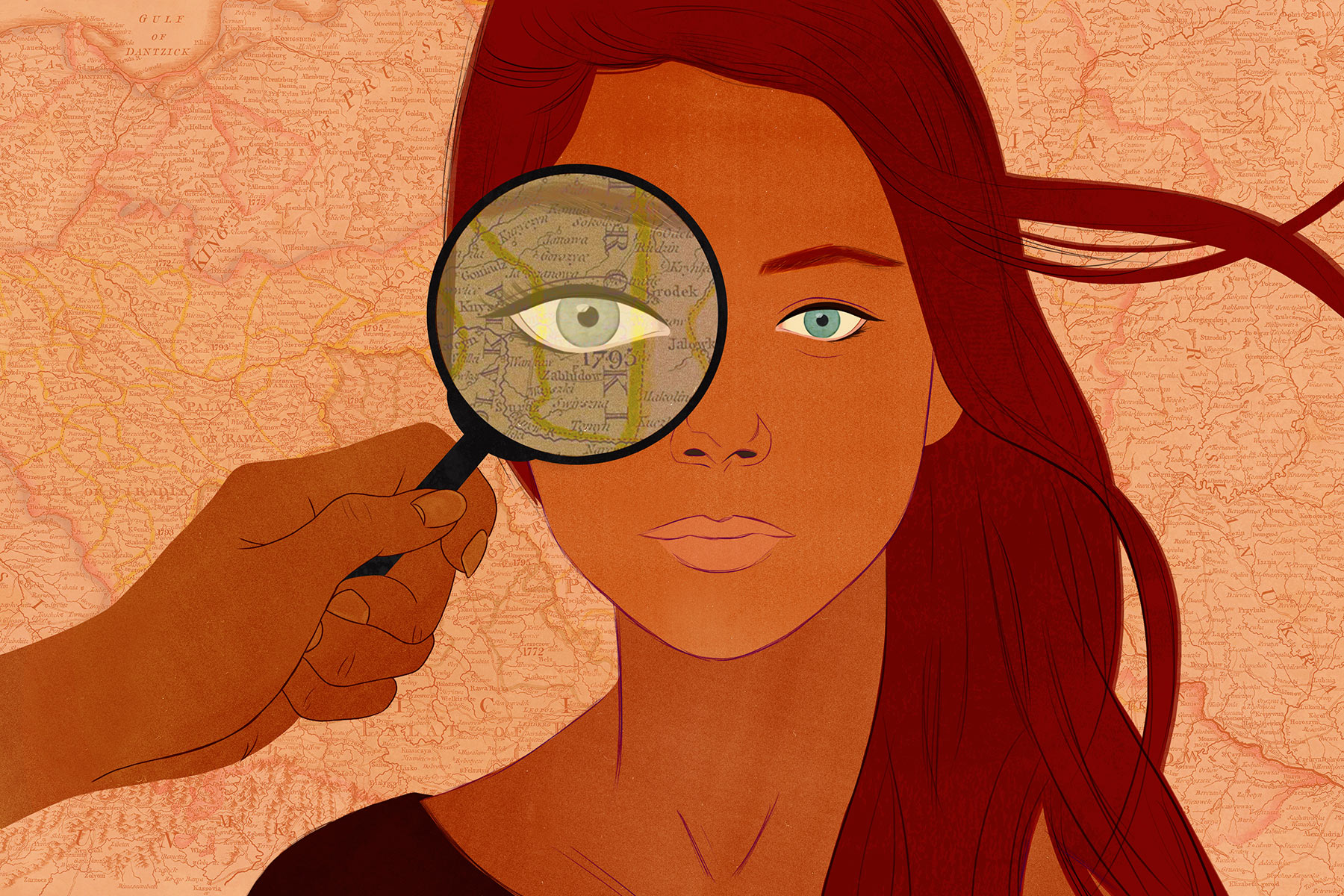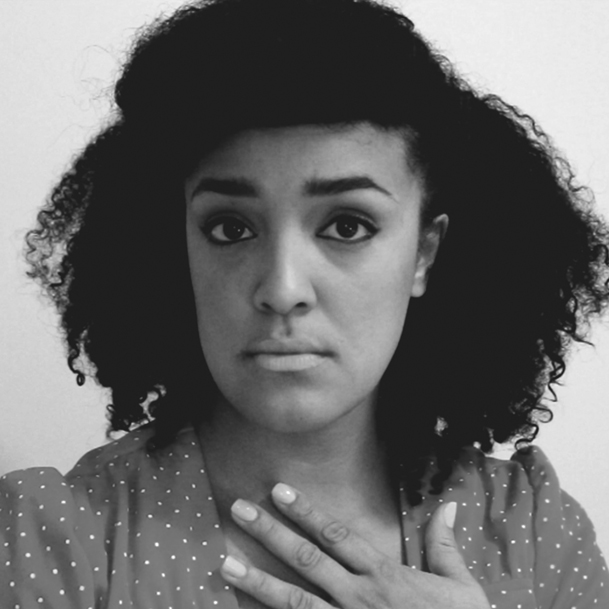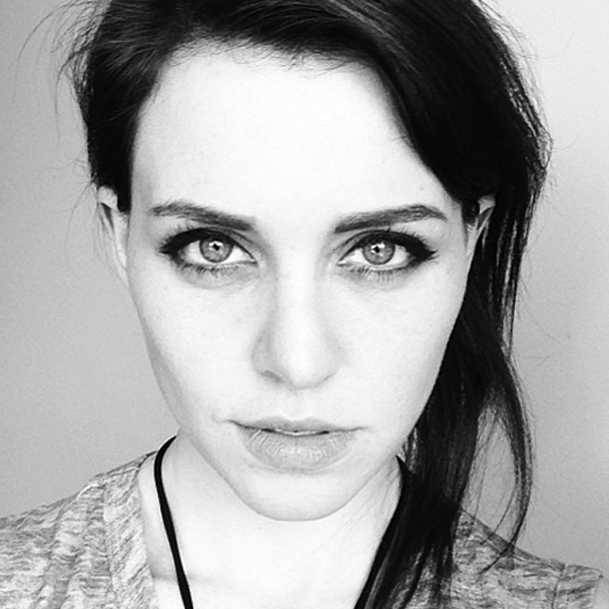“How Old Are You?” An Age-Old Question of No Importance
My mother never told me her age. She never really wore makeup either. One day, while rifling through her cool 80s earrings, I accidentally caught a glimpse of her driver’s license and immediately proceeded to blink my eyes, shake my head, and pretend it didn’t happen. After all the years of wondering, I was surprised to learn that I didn’t actually want to know. That I liked not knowing better. That not knowing was actually more fun.
Sometimes I lie about my age and it always makes me uncomfortable because I really don’t like lying. Lately I’ve started responding to such inquiries with ethereal (and possibly irritating) catchphrases like “timeless” and “as old as the universe.” And it’s not because I’m ashamed or in denial about who I am and the length I’ve lived. It’s because, somewhere along the line, I started to see that there is more to be gained in ambiguity.
As an actor, ambiguity is currency. In an industry where the overall vibe is “young is good, old is worse”—especially if you’re a woman—the ability to remain malleable in the minds of directors and audiences is a valuable quality. Feigning youth can give you longevity; a few extra shots at the ingenue. I tend to be cast younger than my age and, on more than one occasion, I’ve been called upon to play children. Having the opportunity to explore the meaning of age far outside of my actual accumulation of years has resulted in two quandaries: What does age even mean, and how does it matter? After much pondering, it started to become clear that, when it comes to age, the absence of the question provides a greater reward than its answer.
1 – THE ROBOTIC MIND / STAY WOKE
The Robotic Mind is a term I use to describe the part of our brain that behaves, often unconsciously, in accordance with our social conditioning. It’s what guides our actions when we’re on autopilot. Like when you pick up your phone to make a call and suddenly you’re in your Instagram app scrolling and refreshing and you don’t even know how you got there. It’s the part of us that is asleep.
Anytime you encounter someone, you are being met with an unknown entity, a manifestation of uncertainty, or what I like to affectionately call A Wonder. Now, if you like wondering, that person-shaped force can become an exciting playground of discovery. But if you don’t like wonderment, they can become a source of anxiety. The Robotic Mind tends to find uncertainty uncomfortable, and in order to regain a sense of stabilization (as we spin through the never-ending universe around a burning ball of gas), our brains, on automatic, start to break down all the unknowns into bite-size morsels of information that are easy to digest. This process reveals what I think is an archaic theory of reality: that the sum is equal to its parts. Based on that theory, we rely on dissection as the most direct route to understanding. But really, how effective is this strategy when no matter how we splice it, we can’t find the soul? Thus, to truly understand a human being, I think we need to take them in as a whole.
2 – AGE, LIKE GENDER, ISN’T ACTUALLY A THING
“Are you a boy or a girl?” is often the first step in moving an unknown person into the known. Whether spoken or thought, it’s a question that contains within it two fundamental assumptions our society is built on: that a person is either boy or girl, and that it’s important to know which. However, as we begin to finally hear and listen to the voices of the queer and trans folk in our communities, we are learning that the question itself is completely inadequate. A lot of people exist in the middle. Actually, most of us do, I think.
A few years ago, I travelled around the western cape of South Africa, and one of the highlights of the trip was a long bike ride to the Cape of Good Hope. Advertised as the most southwestern tip of the continent (it’s not actually, but it’s close), it’s lauded as the place where the Indian and Atlantic oceans meet. But when you arrive, and part the seas of tourists to catch a glimpse of this epic merger, it becomes abundantly clear that there is a big difference between what is true and what is marketing.
…it’s just one big water. The names and the labels are completely arbitrary and meaningless! To a bird or to a butterfly, to the wind or to the rain, the ocean is one. Saying this is where one ocean ends and another ocean begins is the same as saying this is where girl ends and boy begins. Gender is a fabricated limitation. So is age. And I think we need to question the question.
3 – HOW OLD ARE YOU? A SCRUTINY
The questions you ask reveal what information you’re seeking. The variety of questions one could ask at any given moment is infinite, so—why this question? Why this particular one at this particular moment? The energy it takes to fix your mouth to ask: “How old are you?” could instead be used to ask: “What do you like to do on a Sunday afternoon?” The response might be: “Drink Jasmine tea while massaging the scent of gardenia into the crevices of my hands.” Ok—maybe that’s a bit poetic (although not impossible). They could also say: “Take my kid to this park by my house. She likes to get pushed on the swings. Last week she said, ‘Look at me, I’m in the heavens,’ and I almost cried.” Or even the simple: “I work Sundays. I always work Sundays. I always work.” The point is, the question is open so it can take you anywhere, and all of these responses reveal aspects of someone’s individual existence. And yet, given all the options ripe and within your reach you choose: “How old are you?” To which they reply: “Thirty-eight.” And then you ask their job and they say nurse and then the bus comes and they get on and you stay behind thinking you’ve met someone, when all you’ve really become acquainted with are the nuances of your own collapsed curiosity.
4 – CULTIVATING CURIOSITY AS A MEANS TO WORLD PEACE
Life would be much more interesting if we took the time to fondle our own curiosities a little more. To honour enchantment and treat each other in a way that is less, “I must immediately break you down into known parts and figure you out” and more “You are a complete mystery to me, as great as the universe itself, and of all the possible combinations you have arrived here, in my reality, and I wonder who you are.” Because within each moment, each person, is an opportunity for us to be awakened. Which means that no one is ever typical and nothing is boring and the only thing that’s average is the quality of your investigation.
5 – THE GREAT ABYSS OF AGELESSNESS
I’m talking about freedom. Freedom by way of allowing others to paint their own portraits and taking pleasure in the opportunity to witness the unique way they select a brush and deliver a stroke. Because the space we allow for others to defy gravity is directly related to the space that we are making for ourselves to do the same. Does forty mean old, or does it mean nothing in comparison to the care that you take in preparing a cup of coffee for your friend when they arrive in your kitchen on mornings they itch with a yearning to be heard? Does nineteen say anything about the hours you worked through the night to pay for a learning that lived outside of your grandparents’ reach? If it’s these parts of ourselves that truly make up the distance we’ve travelled since the womb, then the question becomes: Are numbers really the best tool to measure a life? I believe the only tool to measure existence is story.
I am a storyteller, so… How old am I? I remember when my feet were small and our backyard was a field of clover. My sister and I would hang off the red iron arm of the pump, in front of our small wooden house, in a wrestle for water. The school at the end of the long, flat road looked like another country. In the summer, the air would smell like strawberries and my father would come home.










Comments